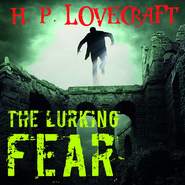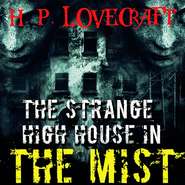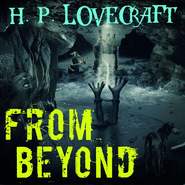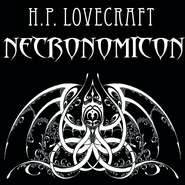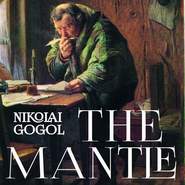Peter Coates
Книги чтеца: Peter Coates
"The Lurking Fear" is a horror short story by American writer H. P. Lovecraft. Written in November 1922, it was first published in the January through April 1923 issues of Home Brew.
The story is narrated by an unnamed seeker of “strange horrors” who…
"The Lurking Fear" is a horror short story by American writer H. P. Lovecraft. Written in November 1922, it was first published in the January through April 1923 issues of Home Brew.
The story is narrated by an unnamed seeker of “strange horrors” who…
"The Strange High House in the Mist" is a short story by H. P. Lovecraft. Written on November 9, 1926, it was first published in the October 1931 issue of Weird Tales. It concerns a character traveling to the titular house which is perched on the top…
"The Strange High House in the Mist" is a short story by H. P. Lovecraft. Written on November 9, 1926, it was first published in the October 1931 issue of Weird Tales. It concerns a character traveling to the titular house which is perched on the top…
"From Beyond" is a horror short story by American writer H. P. Lovecraft. It was written in 1920 and was first published in The Fantasy Fan in June 1934.
The story is told from the first-person perspective of an unnamed narrator and details his exper…
"From Beyond" is a horror short story by American writer H. P. Lovecraft. It was written in 1920 and was first published in The Fantasy Fan in June 1934.
The story is told from the first-person perspective of an unnamed narrator and details his exper…
"The Shunned House" is a horror fiction novelette by American author H.P. Lovecraft, written on October 16–19, 1924. It was first published in the October 1937 issue of Weird Tales.
For many years, the narrator and his uncle, Dr. Elihu Whipple, have…
"The Shunned House" is a horror fiction novelette by American author H.P. Lovecraft, written on October 16–19, 1924. It was first published in the October 1937 issue of Weird Tales.
For many years, the narrator and his uncle, Dr. Elihu Whipple, have…
Necronomicon: The Best Weird Tales of H.P. Lovecraft: Commemorative Edition is a select collection of horror short stories, novellas and novels written by H. P. Lovecraft.
This collection includes stories by H. P. Lovecraft: The Call of Cthulhu, Dag…
Necronomicon: The Best Weird Tales of H.P. Lovecraft: Commemorative Edition is a select collection of horror short stories, novellas and novels written by H. P. Lovecraft.
This collection includes stories by H. P. Lovecraft: The Call of Cthulhu, Dag…
"The Horror at Red Hook" is a short story by American writer H. P. Lovecraft, written on August 1–2, 1925. «Red Hook» is a transitional tale, situated between the author's earlier work and the later Cthulhu Mythos. Although the story depicts a sinist…
"The Horror at Red Hook" is a short story by American writer H. P. Lovecraft, written on August 1–2, 1925. «Red Hook» is a transitional tale, situated between the author's earlier work and the later Cthulhu Mythos. Although the story depicts a sinist…
"Gogol, Nikolai Vassilievitch. Born in the government of Pultowa, March 31 1809, died at Moscow, March 4 1852. A Russian novelist and dramatist. He was educated in a public gymnasium at Pultowa, and subsequently in the lyceum, then newly established,…
"Gogol, Nikolai Vassilievitch. Born in the government of Pultowa, March 31 1809, died at Moscow, March 4 1852. A Russian novelist and dramatist. He was educated in a public gymnasium at Pultowa, and subsequently in the lyceum, then newly established,…


